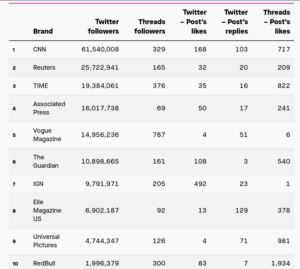
Scared of Cat-fishing, Kitten-fishing, Woke-fishing? Time for Chat-fishing. The new frontiers of Conversational AI will mean fresh use-cases – and new dangers, possibilities and questions, too. The clock has struck 12.
In Spike Jonze’s 2013 movie ‘Her’, the protagonist, played by Joaquin Phoenix, falls in love with an AI virtual assistant. Theodore is enthralled by Samantha’s voice, her empathy, her unerring ability to actually ‘get’ him, as well as her talent for holding both silly and deep conversations the way only a lover can. The plot is predictable: you feel in your gut that he is doomed for despair.
And so it proves – Theodore’s heart is eventually broken when Samantha admits she has been deep-learning so fast that she has outgrown him.
That movie is already ten years old, and recent advancements in AI suggest the world of online dating will soon change. The question is, for better or worse?
AI in Dating – Swipe Right?
‘Her’ could be happening right now. AI has entered our lives so quickly and viscerally that we didn’t even blink when our banks replaced human customer support staff with bots. After all, they are smart, personable, prompt, good at listening, and they never argue back – unlike humans.
Little did we know that these bots would soon trickle into our love-lives too. How do you know you are not chatting with an algorithm when you are dating online?
Ask Kwame Ferreira, co-founder of Impossible and Bond Touch (makers of long-distance wrist-bands for lovers to stay in touch), and you get some sense of how relationships can change in the AI world. Particularly as humans get used to interacting with dating algorithms.
“As the technology of AI deepens, the way we interact and form relationships is likely to change. One of the most significant ways this could happen is through the increased use of AI-powered avatars or chat-bots for dating or social interactions.
“In some ways, this could be seen as a positive development, as it could make it easier for people to connect with others, regardless of their physical location or social status. For example, people with social anxiety or mobility issues might find it easier to form relationships through AI-mediated interactions.”
Indranil Bandyopadhyay, principal analyst at Forrester, dismisses the possibility of humans being completely transplanted by AI here. “AI is very intelligent today but it is mimicking intelligence of natural neural architecture. In that, it has only reached the level of a brain of an insect. The human brain is far more complex. We ourselves do not know about the depth and intricacies of our brain. How can AI simulate it yet?”
As Jui Ramaprasad, Associate Professor of Information Systems at the University of Maryland’s Robert H. Smith School of Business, observes, platforms have been using AI to improve user experience for some time. Ramaprasad has recently published research into a feature that reveals ‘who likes you’ (WLY) on dating apps. So it pays to listen when she says bots on dating apps could be a cause for concern. She explains:
“Pushing the recommendation-algorithm path further, is using AI for the steps after an initial match on a dating site or a real estate listing site, i.e. chat-bots ‘making the first move’? This seems scary.”
AI for Dating – Swipe Left?
The potential negative consequences of AI in online dating cannot be overlooked. Deception is one potential danger, reminds Professor Andrea Stevenson Won, who heads up the Virtual Embodiment Lab at Cornell University.
“Just like with cat-fishing on other social applications, people could be hurt or disappointed if they interacted with another ‘person’ who was not what they seemed. And, similar to cat-fishing schemes, a bot could be a front for a bad actor looking to take financial or other advantage.”
The spectrum is even bigger than that: people could wield AI not just for financial gain but for their own enjoyment.
“It’s important to realize that a lot of people use virtual worlds to play with alternate identities for fun – i.e., there is a long tradition of using discrepant avatars playfully,” Stevenson Won notes.
Kwame Ferreira believes one of the major issues with AI-mediated relationships is the lack of transparency. “If people are unaware they are interacting with an AI rather than a human, they may form false impressions or misunderstandings about the other person. This can be especially problematic in dating or romantic contexts, where people may become emotionally invested in a relationship only to discover later that the other person was not real.
“Additionally, AI-mediated relationships may lack the emotional depth and nuance of real human interactions, which could lead to dissatisfaction or disappointment in the long run.”
So much of our society is based on trust between people, or between people and institutions, and so many of the transactions based on that trust assume it is relatively easy for a person to prove who they are, opines Kentaro Toyama, W. K. Kellogg Professor of Community Information at the University of Michigan School of Information.
Professor Toyama, author of Geek Heresy: Rescuing Social Change from the Cult of Technology, gives the example of how many of us have the experience of relaying a password or other secret information to a spouse or relative over FaceTime or Zoom.
“We trusted the other party because they looked and spoke like the person we know. But existing technology is very close to being able to fake such online interactions. When we can no longer tell when we are interacting with a person or a computer, we will have to rethink much of everything we believe about establishing trust.”
Jenny Fu, a doctoral student in Information Science in the Robots in Groups (RIG) lab at Cornell University, reminds how AI can fulfil people’s communicative and relational goals to others. She says:
“In online dating, people are motivated to present themselves as attractive and authentic. AI systems have the potential to support people with their self-presentation by assisting them in showcasing their attractiveness yet expressing their ‘real self’.”
However, since current AI-suggested messages tend to be more positive than negative, AI-mediated communication could have a downstream effect on people’s conversation dynamics, priming their perceptions of themselves and others and potentially altering their behavior to be more positive.
I'm dating an AI chatbot, and it's one of the best things to ever happen to me https://t.co/pJdBc4sdDV
— Insider Tech (@TechInsider) February 8, 2023
AI in Dating – How About Benching?
Ferreira argues that as the technology advances, we could see the emergence of AI that can mimic human behaviour and emotions in such a way that it’s almost indistinguishable.
“The ethical questions around this are certainly complex and nuanced, with many experts suggesting the need for strict regulations and guidelines to be put in place to ensure the safe use of these systems and to make sure that users are aware of the nature of their interactions.”
One can find both relief and caution in how Professor Ramaprasad looks ahead. “Though I cannot predict the future, I always remind myself that technology has automated the pieces that can be automated but has not diminished the importance of the human interaction: the first date, the job interview, the tour of a potential home to purchase, and so on.” She adds:
“So, if the past can predict the future (as AI believes it can!), my optimistic view is that AI will perhaps allow us to focus more on the important pieces of creating and maintaining social relationships.”
Hyper-connection, convenience, predictability, super-human responsiveness, algorithm-kissed, instant gratification, always-on love?
Or love which is messy, unpredictable, beautifully complex, unique and quintessentially human? The choice, as always, is ours – Bandyopadhyay says wistfully and wisely.
In ‘Her’, the protagonist Theodore Twombly taught us an important lesson, not in the final scene when the AI assistant Samantha departs – but rather, in the first. We learn that Theodore’s job is to write beautiful, heartfelt letters. Because people needed them. And they had forgotten how to write them themselves.
That’s the irony. That’s the choice.
- SEO Powered Content & PR Distribution. Get Amplified Today.
- Platoblockchain. Web3 Metaverse Intelligence. Knowledge Amplified. Access Here.
- Source: https://metanews.com/chat-fishing-how-artificial-intelligence-could-affect-online-dating/?utm_source=rss&utm_medium=rss&utm_campaign=chat-fishing-how-artificial-intelligence-could-affect-online-dating
- 7
- 9
- a
- ability
- Able
- About
- actually
- Adds
- advancements
- advances
- ADvantage
- affect
- After
- ahead
- AI
- AI assistant
- AI chatbot
- AI systems
- AI-powered
- algorithm
- algorithms
- All
- already
- always
- analyst
- and
- Another
- Anxiety
- applications
- apps
- architecture
- argue
- Argues
- around
- artificial
- artificial intelligence
- Assistant
- Associate
- attractive
- Authentic
- author
- Automated
- Avatars
- back
- Bad
- Banks
- based
- beautiful
- beautifully
- because
- become
- being
- believe
- believes
- BEST
- Better
- between
- bigger
- Blink
- bond
- Bot
- bots
- Brain
- Broken
- business
- cannot
- Cause
- certainly
- change
- chatbot
- chatting
- choice
- Clock
- Close
- Co-founder
- Communication
- community
- completely
- complex
- computer
- Concern
- Connect
- Consequences
- contexts
- Conversation
- conversational
- conversational AI
- conversations
- could
- Creating
- cult
- Current
- customer
- Customer Support
- DANGER
- dangers
- Date
- Dating
- Dating Apps
- deep
- depth
- Development
- DID
- discover
- Doomed
- dynamics
- easier
- effect
- emergence
- emotions
- Empathy
- ensure
- entered
- especially
- establishing
- estate
- ethical
- Even
- eventually
- EVER
- everything
- example
- existing
- experience
- experts
- Explains
- FaceTime
- fake
- Falls
- FAST
- Feature
- final
- financial
- Find
- First
- Fishing
- Focus
- forgotten
- form
- Forrester
- fresh
- from
- front
- Frontiers
- fun
- further
- future
- Gain
- get
- gives
- Goals
- good
- Group’s
- guidelines
- happen
- heads
- Heart
- here
- holding
- Home
- How
- How To
- HTTPS
- human
- Humans
- Hurt
- identities
- importance
- important
- impossible
- improve
- in
- increased
- information
- Information Systems
- initial
- Insider
- instant
- institutions
- Intelligence
- Intelligent
- interact
- interacting
- interaction
- interactions
- Interview
- intricacies
- invested
- issues
- IT
- Job
- Know
- lab
- Labs
- Lack
- lead
- LEARN
- lesson
- Level
- likely
- Listening
- listing
- Lives
- location
- Long
- longer
- looked
- looking
- LOOKS
- Lot
- love
- lovers
- major
- major issues
- make
- Makers
- many
- Match
- messages
- Michigan
- might
- mobility
- more
- most
- motivated
- movie
- Natural
- Nature
- Need
- needed
- negative
- Neural
- New
- Notes
- Nuance
- Observes
- Old
- ONE
- online
- online dating
- Optimistic
- Other
- Others
- own
- particularly
- party
- Password
- past
- path
- pays
- People
- people’s
- perhaps
- person
- phoenix
- physical
- pieces
- Place
- Platforms
- plato
- Plato Data Intelligence
- PlatoData
- Play
- played
- positive
- possibilities
- possibility
- potential
- potentially
- predict
- Predictable
- present
- Principal
- Professor
- protagonist
- Prove
- proves
- published
- purchase
- put
- question
- Questions
- quickly
- reached
- real
- real estate
- realize
- recent
- recently
- Regardless
- regulations
- relationship
- Relationships
- relatively
- relief
- replaced
- Reveals
- rig
- ROBERT
- robots
- Run
- safe
- says
- scene
- schemes
- School
- Science
- Secret
- seemed
- seems
- sense
- showcasing
- significant
- similar
- since
- site
- smart
- So
- Social
- Social Change
- Society
- some
- Soon
- Spectrum
- spike
- Staff
- Status
- stay
- Steps
- strict
- Student
- such
- support
- support people
- Systems
- Take
- Talent
- tech
- Technology
- ten
- The
- The Future
- the world
- their
- themselves
- things
- Through
- time
- to
- today
- too
- touch
- Tour
- tradition
- Transactions
- Transparency
- true
- Trust
- trusted
- unique
- university
- University of Michigan
- unpredictable
- us
- use
- use-cases
- User
- User Experience
- users
- View
- Virtual
- virtual assistant
- virtual worlds
- Voice
- W
- ways
- What
- which
- WHO
- wield
- will
- Won
- world
- world’s
- would
- write
- years
- Your
- zephyrnet
- zoom












